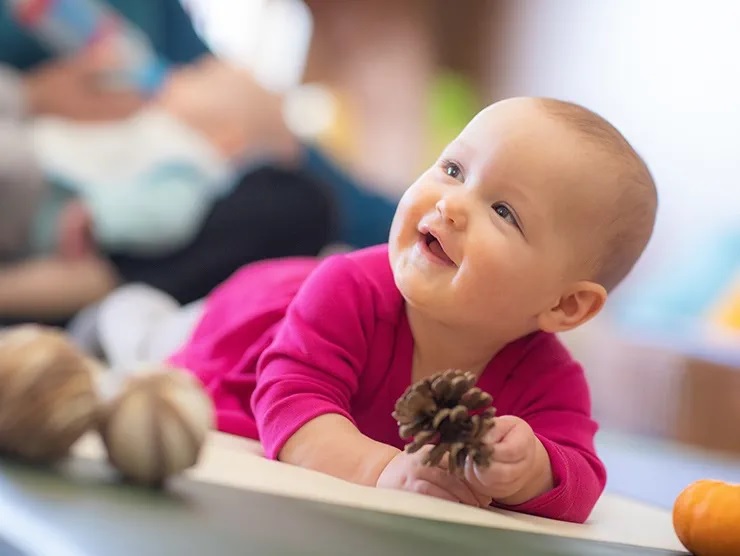A new Irish study found about 25% of these new babies spent a year without ever meeting a child their own age. Incidental interactions with strangers and community members at grocery stores or playgroups didn't happen. They rarely had a chance to wave "bye-bye"

When social interaction came to a halt during the early months of the COVID-19 pandemic, newborn babies missed out on vital communication milestones, researchers say.
A new Irish study found about 25% of these new babies spent a year without ever meeting a child their own age. Incidental interactions with strangers and community members at grocery stores or playgroups didn't happen. They rarely had a chance to wave "bye-bye."
But it's not cause for parents to worry, cautioned lead study author Dr Susan Byrne, a senior lecturer in paediatrics and child health at the Royal College of Surgeons in Dublin, Ireland.
"Babies are very resilient and, obviously, the pandemic measures are all reduced now so there's loads of opportunities for people to get out with their little people and for them to see the world," Byrne said.
For the study, researchers used data from 1,629 infants born between 2008 and 2011 (BASELINE study) and compared that to data on 309 infants (in the CORAL study of allergies and autoimmune dysregulation in infants) born during lockdown. These babies were born between March and May 2020.
The researchers assessed 10 developmental outcomes, including communication skills, such as expressing one definite and meaningful word, pointing at objects and waving "bye-bye."
The differences in language skills were small, the investigators found.
About 77% of the CORAL babies had expressed one definite and meaningful word compared to 89% of the BASELINE babies. About 84% of the CORAL group could point, compared to 93% of the others. About 88% could wave bye-bye compared to about 95% in the BASELINE group.
"What we put it down to is that the babies were probably seeing far fewer people and hearing fewer words and voices," Byrne said. "And they also were in their homes for most of the time, so they didn't have anyone to wave bye-bye to because nobody was coming to the house and nobody was leaving," she explained.
"Also, with pointing, you want to point at things in a new environment if you're a little baby, but if you're not really in a new environment because you are advised to stay home or have limited movements, you're less likely to be pointing at things," Byrne added.
However, the babies did have stronger command of another skill: They were more likely to be crawling at 12 months than their earlier counterparts.
The researchers also found higher rates of breastfeeding and immunisation for these babies, as well as a slightly increased risk of eczema, or atopic dermatitis.
Ireland experienced a tight lockdown for about 13 months, Byrne said.
"The social circles of the babies were extremely small," she noted. "When the babies came home, other than their parents they were only seeing one other adult outside the home."